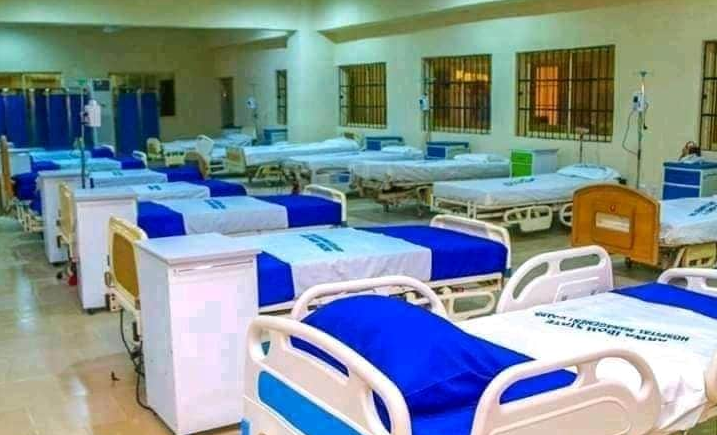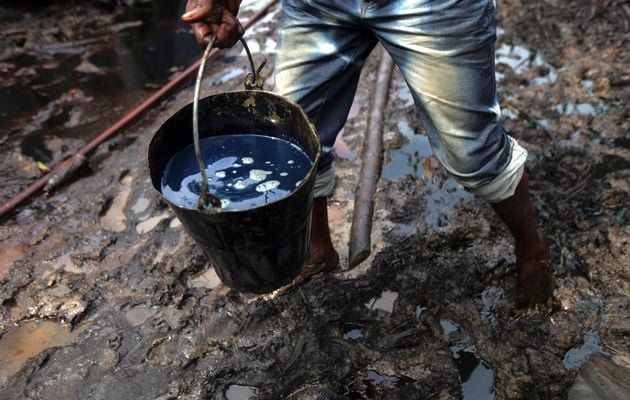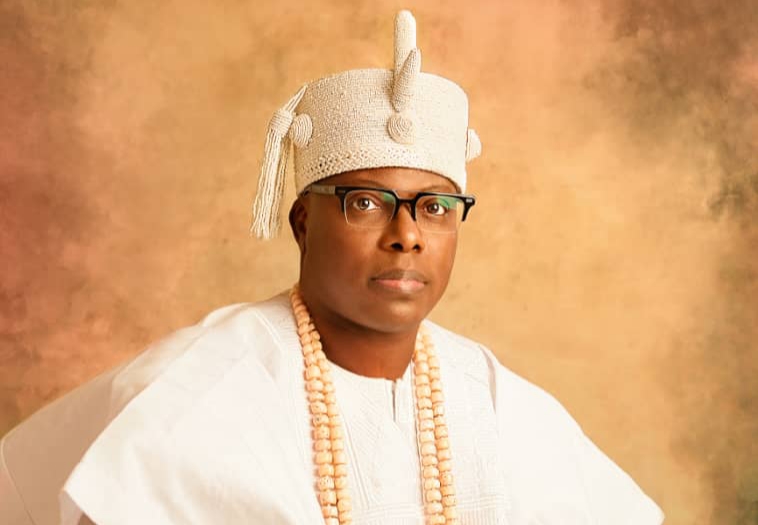BY ADEWALE AJADI
We are in August 2020 and with COVID-19. We entered the pandemic focus around February and assumed the plague would have gone away by now. It is still with us. The challenging thing is that nobody seems to have found the silver bullet or a handle on its dynamics, try as they might have.
There is no well-established protocol for the treatment of the disease that is effective and widely accepted. The desire to get a vaccine has become the new race. No longer is curbing the virus with health systems, nor is the much vaunted Intensive Care Unit architecture and infrastructure the strategy. In fact, the countries that seemed to have managed the pandemic effectively are now going into a second phase of infection: South Korea, New Zealand, Germany, Vietnam and South Korea, amongst others.
The scepticism about the African numbers in terms of testing and what they say about infection is a troubling one. It is clear that the much proclaimed and prophesied devastation that the disease would wreak in Africa, due to its poorer health care systems, has not occurred. Instead of goodwill, African countries are listed as blocked countries on the level of access to most parts of the world, while many other countries with proven huge caseloads are allowed quarantine free access to other parts.
Advertisement
It is not difficult to see the usual assumption that Africa is a constant and persistent failure. People hide behind scepticism about data and the level of testing. However, public testing is based on symptoms in most parts, if not all over the world. This is certainly true in the U.K. and in Nigeria. In my experience, with respect to these two countries, the ease of access and cost of testing in Nigeria is better. The dismissal of African data therefore owes more to prejudice than to counter-evidence.
Indeed, the figures from Africa are incredibly impressive. Scientists ought to be curious why the infection rates are low on the continent, in comparison to other parts of the world. The levels of fatalities are as low, as the levels of recovery are high. Are there different strains of the virus or does the virus have a less fatal effect on African populations, where pathogens like malaria are endemic? The failure to be curious means we have replaced science with prejudice and stereotypes, which is not unusual at all. Countries like Rwanda have had a very impressive record on COVID-19. In fact, they have managed their responses thoroughly better than most countries in the world, but they are never mentioned at all as being examples of success.
We are at a time when we should be open, curious and investigative, rather than contriving assumptions and stereotypes of what works and what does not work. The pandemic offers us a powerful opportunity, especially on the African continent, to genuinely look to new ways as we watch the tried and tested fail across the world. Global standards of development and success are now signposted by powerful question marks. Both the U.K. and U.S. have the worst performance on COVID-19, with extremely high morbidity and mortality rates. In contrast, the numbers are good in Nigeria, which is told that its health care system should model that of the U.S.
Advertisement
As the Nigerian government opens up the international airports and health tourism of the Nigerian elite resumes, we need to reflect deeply on what COVID-19 has taught us. Having undergone a major respiratory operation during the pandemic, I have a personal insight into the healthcare system in Nigeria. My engagement with the Nigerian healthcare system since I have been going back and living there, on and off, has been mixed. I have also spent close to 30 years in the U.K., under the care of the NHS system, and as I have grown older, becoming more engaged with it, I have found the NHS an extremely difficult system.
For example, in relation to blood pressure, the kind of medicines that I have gotten in the NHS have raised deep suspicions in my mind about the system’s understanding and capacity to look after me. For example, the prescription of ACE inhibitors that have widely been shown to have little efficacy with Africans is characteristic of my treatment in the NHS. The NHS professionals have found it impossible to answer my basic questions, only to then proceed to give me tablets that have not really worked for me, amongst many other bad clinical experiences.
Let me further illustrate the problem with our experience as a family, especially pertaining to our last two children. Our middle child was born in a major hospital in South West England, and his mother had to go through three days of labour because her cervix was not dilating. In that period, she was put on an epidural injection without checking the fact that she had low blood pressure. The epidural dropped her blood pressure to dangerous levels and each time they had to put adrenaline into her system to normalise it.
All that was traumatic to watch. And it was deeply troubling, imagining the effect on her. Each time, I thought we had lost her and the child. She went through this, I think, about three times, with massive shocks to her and the child. By the time the baby came out, he was born distressed. His canal was dry. What the child and mother went through is outrageous in any health system. The effect on the child was that in coming into the world, he had to defecate and he was so distressed that they had to take him for special care before he was resuscitated. Thankfully, 27 going on 28 years later, the child is doing brilliantly. However, the point is the damage was done. The damage was to his spine, and it has an effect on him till date.
Advertisement
Once could be tempted to think that the medical interventions in that case happened because of some kind of medical interest. No. It happened because the assumption of the pain threshold of a black woman obscured the capacity of the people who were caring for my wife to ensure that she was properly cared for. For our second child who was born in the U.K., my wife went through two days of labour until, after some pressure, the doctor decided that they would go for a caesarean section. In trying to do the section, the doctor, alleging that the child tried to grab his scalpel from him, cut the nose of the child in bringing him into the world. The scar is there on his nose till date.
These are basic things that my family has experienced from the British healthcare system, which is repeatedly celebrated as one of the best in the world. The U.S. system reports the mortality rates of African American women at more than three times the rate for white women in pregnancy related care.
After I was put on medication for blood pressure in the U.K., I went to Nigeria on business, and I am fortunate enough to say that I met some of the greatest doctors I have ever met in my life there. In fact, I met a doctor in St. Nicholas Hospital, who is now the director of that institution, Dr. Ebun Bamgboye, whose method of taking my blood pressure was so incredibly ground-breaking for me. Whilst I was under his care, he would take my arm in a reassuring hold that ensured contact, allowing me to relax and give good readings. The fact that a doctor exercised such care, even in little things, was unlike anything that I had experienced in England.
The assumption that most of us, the Nigerian elite, have is that the quality of healthcare is always better in the developed world. Therefore, we spend loads of money travelling abroad to get healthcare. As if to confirm that, about a year ago, I had a crisis and had to visit a doctor in Asokoro, Abuja. A U.S.-trained doctor, his wall peppered with American certifications, he made a mess by giving me sublingual medication after my usual BP medicine, and I nearly died. I give credit to my Nigeria-trained cardiologist, whose prompt intervention ensured my recovery. The worst part was that U.S.-trained doctor’s lack of visible concern, something that was in contrast to my cardiologist, whose only fault was assuming better knowledge and capacity from her foreign-certified senior.
Advertisement
As a result of that experience, I became very sceptical about staying in Abuja for any medical care. I was very, very sceptical even though I had the best medical insurance available to boot. However, the COVID-19 lockdown found me alone in Abuja. I can say, thankfully, that the unrelenting effect of sleep apnea meant that I had no choice but to try to find good care in Abuja. I managed to find one in the middle of a pandemic. A young doctor, Dr. Ade Faponle, became my doctor via recommendation from a doctor in Lagos. He listened to my concerns and he listened to my comments about the problems of sleep apnea; which is not something most doctors do very well.
At some stage (after many tests), he agreed with me that we should do some kind of imaging of my nostrils. When I got the 3D image that captured my head and nostrils, it showed a depth of polyps across my nostrils and sinus. Dr. Faponle organised for me to see an ENT surgeon, Dr. Folorunsho, in Zenith Kidney and Medical Centre in Abuja. That hospital would subsequently go on to offer all the care that I needed. I did not know that the hospital had a great track record of doing incredible things, including transplant surgery, routinely and successfully.
Advertisement
My treatment was in the middle of the pandemic, when very few people were going to hospitals in Abuja. We were under complete lockdown, but my surgery was scheduled. I was going into surgery for two main reasons. First, the danger of not being able to breathe very well. Second, the incredible challenge of having a respiratory problem within a respiratory pandemic. I went in for the surgery on a Tuesday. The period before the operation, at the hospital, was very calming. On Wednesday, I was cared for by a group of anaesthesiologists who prepped and assessed me with thoroughness and genuine interest. I started a countdown and the next thing I realised was that I woke up, back in the Intensive Care Unit. Apparently, they decided not to do the operation because they could not intubate me and if they had then done a tracheotomy, it would have been against my specified wishes. They wanted my express consent. My wife was especially impressed, since such luxury is rare even in the NHS.
I thought we would go back in the next day, but they said they needed me to rest and needed to observe me before they took me back in for the procedure. At the core of all this was a palpable level of compassion. It is this compassion that is critical in the care of humans, especially when you are not only focused on the disease but on the entire wellbeing and humanity of the patient. To cut a long story short, we went in for the operation to remove the polyps on the Friday. I was intubated successfully, and the surgery was completed. The videos of the process were given to me afterwards, with full display of the egg-sized growth removed.
Advertisement
I was in the Intensive Care Unit for two more nights. The two nights in the ICU were fascinating to me, because they also captured the opportunities and the challenges that we face in the Nigerian healthcare system. The after-operation care was excellent. I had outstanding ICU nurses in the beginning. They were concerned about me and focused on me. Their professionalism and engagement with different aspects of my health was quite moving. However, on my last evening in the ICU, I had a bad experience with some other nurses. They were more focused on their interest of going to the United States of America to seek better pay than caring about their patients in Nigeria. They spent the entire evening talking about what examinations they needed to take, how they needed to get their visas and how they would take contract positions to maximise income, etc. In the few hours with them I seemed to relapse and eventually got a malaria diagnosis. There was a clear contrast between the behaviour of the US-focused nurses and that of the nurses, doctors and other carers who dealt with me prior. Before the shift of the latter nurses, the nurses who had cared for me protected me and had concern for me.
Overall, my total experience of healthcare in Zenith was beyond reproach. The only challenges they had was the, not so unusual, management of facilities by their cleaning staff. Yet, Zenith’s bathrooms were not so dramatically different from what I have seen and experienced in the NHS.
Advertisement
The other part of the journey was that even though I was on insurance, insurance was not used to pay for my surgery. I paid directly from my pocket. The total cost of the surgery was less than $4,000 (including after-care, medication etc.). Since my surgery, I have been back to Zenith for many consultations, and the care I have been given is not only exceptional but better than I have received in the U.K., U.S. and Sweden (the three other countries where I have interacted with healthcare systems).
My point is simply that at the core of medicine is compassion. My experience in Nigeria is light years ahead of any hospital I have been to in those other places. My well-being – aside from having access to the best medical equipment or drugs – starts with care, understanding and compassion. In my entire life this far, the best medical care I have received have all been in Nigeria and that includes from Dr. Ijewere, whose holistic care and guidance I benefitted from for at least three years.
I have learnt that compassion is the foundation of the best medical care, and it does not depend on anything other than empathy and humanity; certainly not on equipment. We have begun to copy the American insurance system in Nigeria, to the great damage of the care of our people. These health insurance schemes only benefit those like me who work for large organisations. Whereas, the majority of our people are in the informal sector, without cover. The American insurance system, based on exclusion and caste in the U.S., has no efficacy in Africa. The irony is that, to our great benefit in Nigeria, the good hospitals are not really interested in your health insurance. They are interested in being paid in cash. In our normal way, borrowed approaches have come to Nigeria to fail.
The future of healthcare in Africa will centre on the holistic understanding of the human being, the essential care in terms of what we eat daily and how we live our lives, the capacity for us to sustain that in terms of prevention rather than disease focus only and, last but not least, the existence of compassion necessary to maintain our humanity along the way. These are the things I have learnt from my own experience, having a major operation in the middle of the pandemic.
Ajadi, a lawyer, creative consultant and leadership expert, is the author of Omoluwabi 2.0: A Code of Transformation in 21st Century Nigeria.
Views expressed by contributors are strictly personal and not of TheCable.
Add a comment






